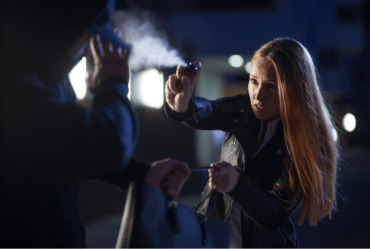Search

Understanding self defense laws is crucial for every New Yorker. In a fast-paced environment like New York City, individuals may find themselves in situations where they need to defend themselves physically. However, the laws surrounding self defense can be complex and vary significantly from state to state. This blog aims to clarify New York self defense laws, including the legal definitions, applicable weapon regulations, and what constitutes justifiable self defense. By gaining a comprehensive understanding of these laws, you can ensure your rights are protected in any situation.
In New York, the self defense definition law revolves around the right to protect oneself from imminent harm. According to New York Penal Law § 35.15, a person is justified in using physical force when they reasonably believe that such force is necessary to defend themselves against another’s use or imminent use of unlawful physical force. Here are key components of the law:
1. Reasonable Belief: The individual must have a reasonable belief that they are in imminent danger.
2. Proportionality: The force used in self defense must be proportionate to the threat faced. For example, responding to a verbal threat with lethal force would not be considered justifiable.
3. Duty to Retreat: New York follows the “duty to retreat” principle, meaning that before using deadly physical force, an individual must attempt to retreat from the confrontation if it is safe to do so.
When discussing self defense in New York, it’s essential to recognize the unique challenges faced in an urban setting like NYC. The dense population and high-stress environment can lead to confrontations where the lines between self defense and aggression may blur. Here are aspects specific to NYC self defense laws
1. Urban Environment: The close quarters of city living mean that aggressive physical encounters can occur quickly. Understanding your rights regarding self defense is vital while navigating a city where tensions can escalate.
2. Public Spaces: Engaging in self defense within public spaces can complicate legal outcomes. Witnesses may interpret actions differently, which could influence how a case unfolds in court.
3. Self Defense Weapons: Residents should also be aware of self defense weapon laws. While pepper spray is legal in New York, other weapons like firearms are subject to strict controls and permits.
Using self defense can lead to legal scrutiny, making it imperative to understand the potential consequences. Here are important considerations:
Even in a claimed act of self defense, individuals may face criminal charges. The prosecution must prove that the accused did not have a reasonable belief that self defense was necessary. Factors influencing this include:
1. Nature of the Threat: Was there an actual physical assault, or was it verbal?
2. Alternatives Available: Did the individual have a chance to retreat before escalating the confrontation?
In addition to criminal charges, there is also the possibility of civil lawsuits. An individual may be sued for damages resulting from the incident, regardless of the outcome in criminal court. It’s essential to be aware of:
1. Personal Injuries: If the other party suffered injuries, they might pursue compensation through civil channels.
2. Legal Representation: Engaging a skilled attorney is crucial for navigating both criminal and potential civil proceedings.
To further clarify New York self defense laws, here are some essential terms to familiarize yourself with:
1. Imminent Threat: A situation where there is an immediate risk of harm, generally requiring prompt action for self protection.
2. Deterrent Force: Use of non-lethal methods of self defense intended to deter aggression without causing serious injury.
3. Non-deadly Force: Any physical response intended to defend oneself without the intention of causing death or serious injury.
If you find yourself involved in an incident involving self defense, it is essential to seek legal counsel immediately. An experienced attorney well-versed in self defense law can provide guidance on:
1. Claiming Justification: Building a defensive strategy that clearly states the circumstances of the incident.
2. Understanding Rights: Ensuring you know your legal rights regarding self defense under New York law.
While it is your right to protect yourself, understanding and responsibly using self defense weapons is critically important. New York has stringent laws regarding self defense weapons, ensuring that your choices align with legal criteria.
1. Pepper Spray: Legal for self defense; however, it must be in containers of up to 2.5 ounces.
2. Personal Alarms: Effective deterrents that can alert others to a possible attack without escalating to physical force.
3. Stun Guns: Legal in New York but with restrictions and must comply with specific regulations.
Navigating New York self defense laws can be challenging but understanding your rights is vital for your protection in various situations. Whether it’s knowing what constitutes justifiable self defense or recognizing the relevant weapon laws, being informed can help you react appropriately when faced with danger.
If you find yourself in a self defense situation or simply want to learn more about your rights, consider consulting with a legal professional specializing in self defense law. Equipping yourself with knowledge and skilled representation is the best way to ensure your safety and legal standing in New York.